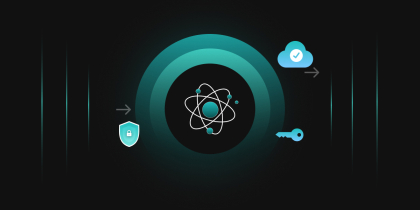The Federal Information Processing Standards Publication (FIPS) 204 introduces the Module-Lattice-Based Digital Signature Standard. This standard is designed to address the growing need for security in an era where traditional cryptographic methods may be vulnerable to quantum computing attacks. Here’s a detailed overview of FIPS 204, its purpose, and its implications for modern cryptographic practices.
What is FIPS 204?
FIPS 204 is a standard developed by the National Institute of Standards and Technology (NIST) that defines a lattice-based digital signature algorithm called ML-DSA (Module-Lattice-Based Digital Signature Algorithm). Unlike traditional cryptographic standards, which rely on mathematical problems that are vulnerable to quantum attacks, FIPS 204 utilizes lattice-based cryptography, a field that offers promising resistance to such emerging threats.
The goal of FIPS 204 is to provide a robust digital signature method, ML-DSA, that maintains security in the face of quantum computing advancements.
Sizes of keys and signatures of ML-DSA
ML-DSA-44
- Private Key: 2560 bytes
- Public Key: 1312 bytes
- Signature Size: 2420 bytes
- RBG strength required: Should be at least 192 bits (recommended), but must be at least 128 bits.
Note: You may use an RBG with 128-bit security. But if it is less than 192 bits, then the overall security classification (NIST-defined security levels that map to post-quantum cryptographic strengths) of ML-DSA-44 is downgraded from category 2 to category 1. Therefore, if you use a weaker RBG (128 bits), then even if the algorithm is designed for category 2 (192-bit security), you can only claim category 1 (128-bit security).
ML-DSA-65
- Private Key: 4032 bytes
- Public Key: 1952 bytes
- Signature Size: 3309 bytes
- RBG strength required: 192-bits
ML-DSA-87
- Private Key: 4896 bytes
- Public Key: 2592 bytes
- Signature Size: 4627 bytes
- RBG strength required: 256-bits
Key Features and Objectives
-
Quantum Resistance
The primary driver behind FIPS 204 is to offer a cryptographic solution resistant to quantum computing attacks. Quantum computers have the potential to solve complex mathematical problems that underpin current cryptographic algorithms like RSA and ECC, making them vulnerable to future breaches. Lattice-based cryptography, the foundation of FIPS 204, is believed to be secure against these quantum threats, thus providing a higher level of future-proof security.
-
Lattice-Based Cryptography
FIPS 204 employs lattice-based cryptography, which involves complex geometric structures known as lattices. These lattices are used to construct algorithms that are computationally challenging to break, even with the advanced capabilities of quantum computers. The strength of lattice-based methods lies in their resistance to attacks that can undermine traditional cryptographic systems.
-
Digital Signature Algorithm
The standard specifies a digital signature algorithm that enables secure authentication and integrity verification of digital messages. Digital signatures are essential for ensuring that the information has not been altered and verifying the identity of the sender. FIPS 204 provides a detailed framework for generating and validating these signatures, ensuring reliability and security.
-
Interoperability
By setting a standardized approach for lattice-based digital signatures, FIPS 204 promotes interoperability across various systems and platforms. Organizations that adopt this standard can ensure their digital signatures work seamlessly within different environments, enhancing compatibility and ease of integration.
-
Implementation Guidelines
FIPS 204 offers comprehensive guidelines for the practical implementation of lattice-based digital signatures. This includes procedures for key generation, signature creation, and verification processes. Adhering to these guidelines helps ensure that cryptographic implementations are robust, secure, and consistent with high security standards.
Implications for Security and Compliance
-
Enhanced Security
The introduction of FIPS 204 represents a significant step towards bolstering digital security. The lattice-based approach offers a higher level of protection against potential future threats from quantum computing. Organizations adopting this standard can better safeguard their data and communications, making it more resilient to advanced attacks.
-
Regulatory Compliance
FIPS standards, including FIPS 204, are essential for compliance with federal regulations. Organizations operating under such regulations must adhere to these standards to demonstrate their commitment to security. Implementing FIPS 204 helps ensure that an organization meets these regulatory requirements and maintains a high standard of data protection.
-
Future-Proofing
FIPS 204 is a forward-looking standard that addresses the evolving landscape of cryptographic threats. By integrating lattice-based cryptography, organizations can future-proof their digital security measures, preparing for potential advances in technology that could otherwise compromise traditional cryptographic systems.
-
Strategic Adoption
Adopting FIPS 204 is a strategic move for organizations looking to stay ahead of the curve in cryptographic security. As quantum computing continues to develop, having a lattice-based digital signature solution in place positions organizations to effectively handle emerging threats and maintain secure operations.
How Encryption Consulting Can Help with FIPS 204 and Post-Quantum Cryptography
Our post-quantum cryptography services are designed to secure your data and communications as quantum technology advances.
- Risk Assessment: We evaluate your current cryptographic systems to identify vulnerabilities and assess risks related to quantum threats, including potential impacts on your digital certificates and cryptographic keys.
- Quantum Readiness Roadmap: We create a tailored strategy and roadmap to guide your transition to quantum-resistant cryptography. Our approach ensures you’re prepared for emerging threats and compliant with industry best practices.
- Seamless Implementation: We manage the implementation of post-quantum solutions, from proof of concept to full deployment, ensuring a smooth transition and compliance with NIST standards.
Conclusion
FIPS 204 marks a significant advancement in the field of digital signatures by incorporating lattice-based cryptography. This standard is designed to enhance security in an era where traditional cryptographic methods may fall short due to the rise of quantum computing. By adopting FIPS 204, organizations can benefit from robust, future-proof digital signature solutions that ensure data integrity and security. As we enter the quantum era, FIPS 204 provides a solid foundation for addressing both current and future security challenges, reinforcing the importance of proactive and resilient cryptographic practices.




